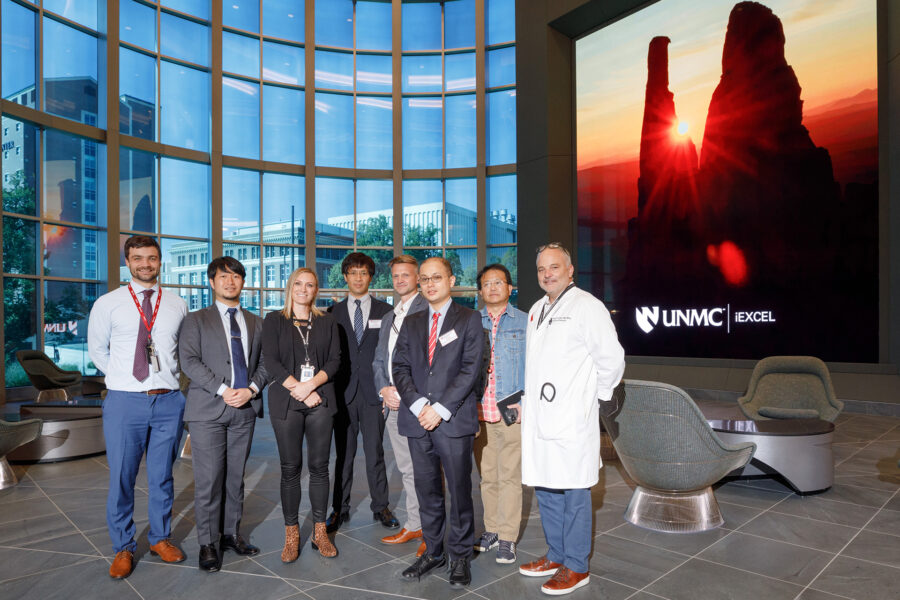Four delegates from the Japan National Center for Global Health and Medicine (NCGM) visited UNMC on Oct. 12 and 13.
UNMC’s John Lowe, PhD, accompanied the delegates throughout their two-day visit, which focused on the National Emerging Special Pathogens Training and Education Center and the Global Center for Health Security.
Dr. Lowe, who is the assistant vice chancellor for interprofessional health security training and education, said the visit benefited not only the delegates, but UNMC leaders as well.
“It’s a priority for us to partner with leading centers around the globe,” he said. “We want to make sure that the understanding that we have is broad and informed by the top experts around the world, such as our colleagues from Japan.”
The delegates included Masahiro Ishikane, MD, PhD, Yukimasa Matsuzawa, MD, PhD, Hiromi Hibino, MD, MPH and Shinichiro Morioka, MD.
On the first day, the delegates met with Jocelyn Herstein, PhD, Jared Evans, PhD, Lauren Sauer and Abbey Lowe and heard an overview of the Special Pathogens Research Network. They also heard presentations from Andre Kalil, MD, on the Adaptive COVID-19 Treatment Trial and from David Brett-Major, MD, on the Clinical Characterization Protocol for Severe Emerging Infections.
Dr. Morioka, deputy chief medical director, disease control and prevention center, NCGM, said UNMC and NETEC’s reputation preceded them.
“You are our role model,” he said. “Your organization is very well established and organized. We wanted to learn how you dealt with emerging and re-emerging infectious diseases. We need to be prepared.”
The group toured the iEXCEL program on the second day. Dr. Morioka described the facility as “fascinating.” While at the Davis Global Center, delegates heard presentations on genomic surveillance and the C-STARS program. They met with various UNMC leaders, including James Lawler, MD, executive director of international programs and innovation at the center.
The visiting doctors also toured the Nebraska Quarantine Unit. Although their systems are different, Dr. Lowe said, experts in the United States and Japan face similar threats and can learn from each other.
“We encountered the same infectious disease threats, and we’re likely to partner in an emergency response in other parts of the globe,” he said. “It’s important for us to build long-term partnerships, so we can tackle challenging and unforeseen problems.”
